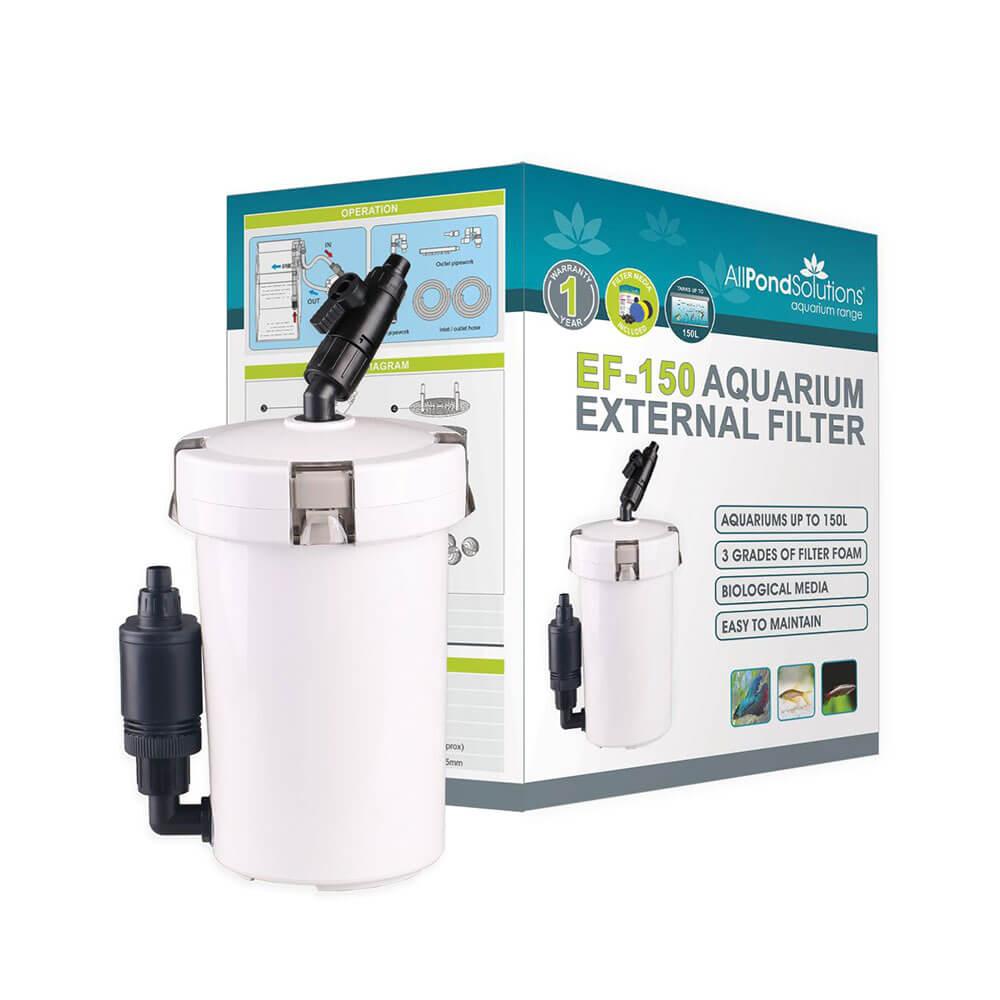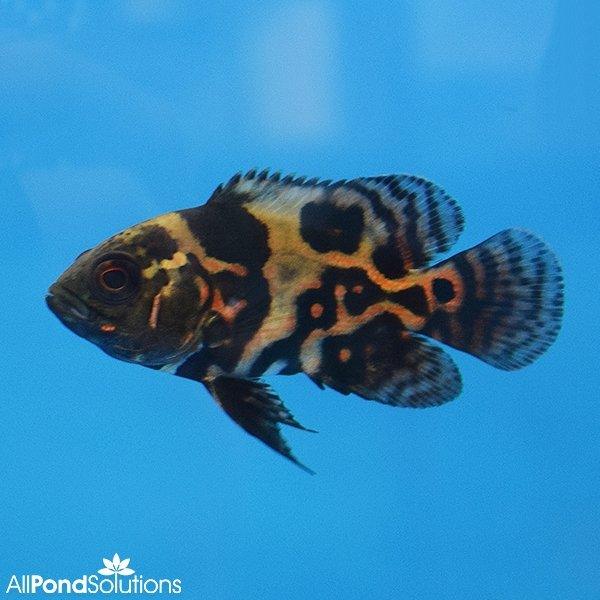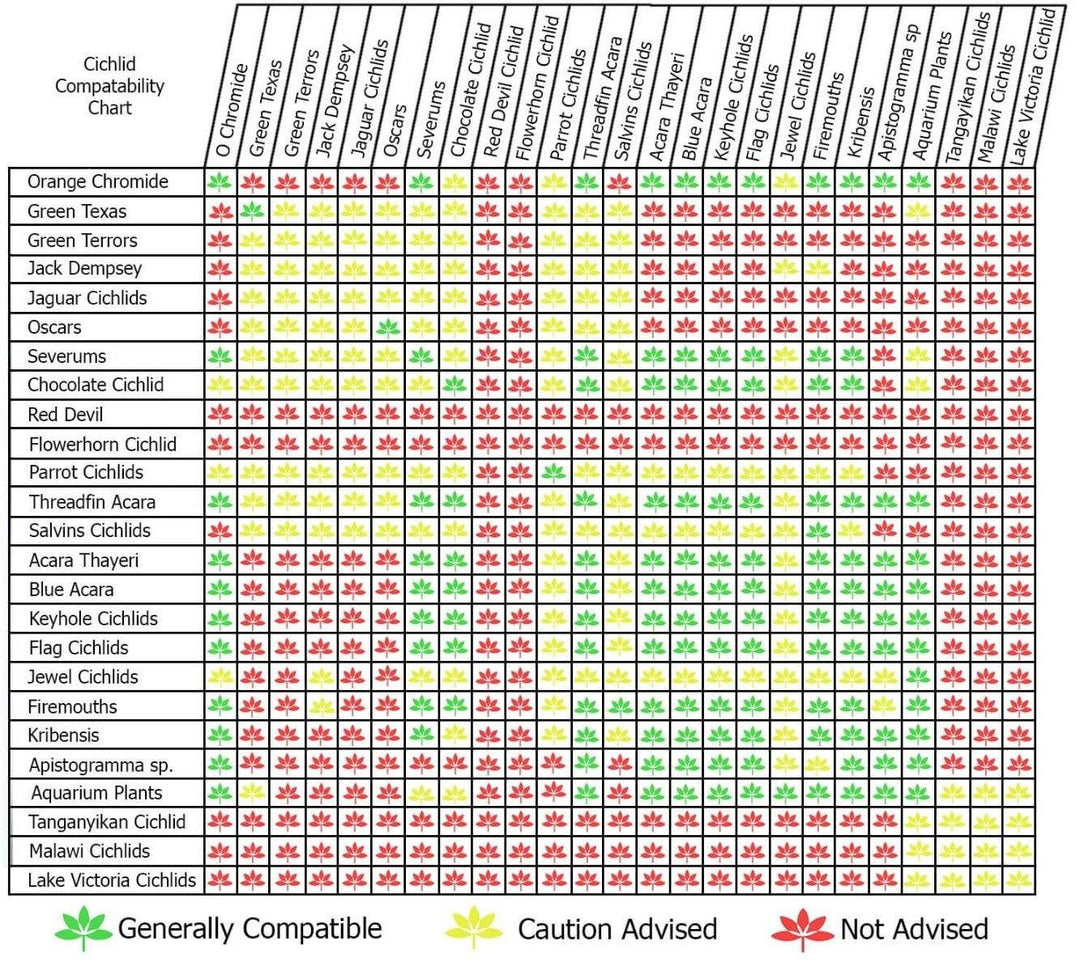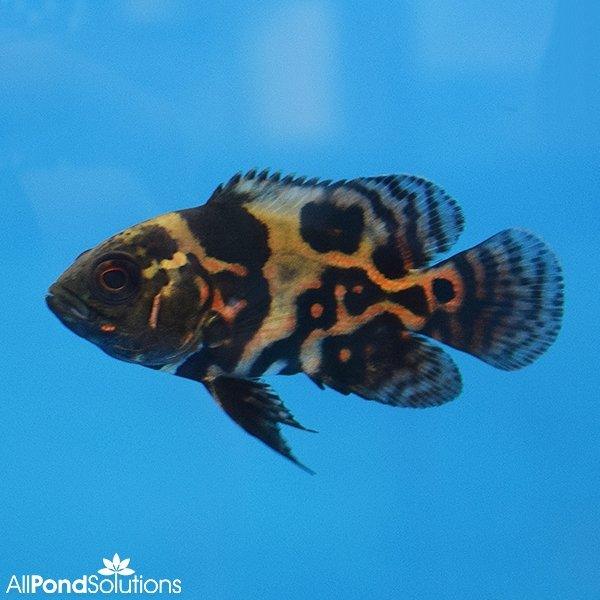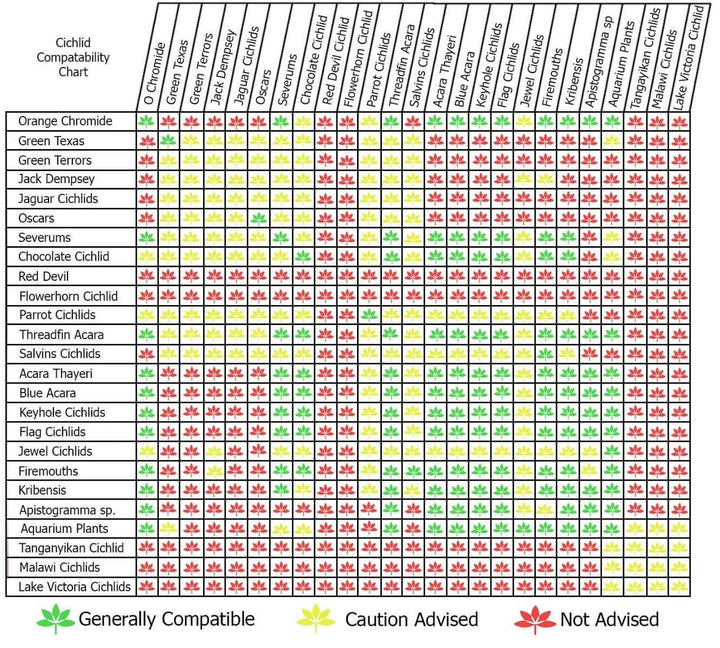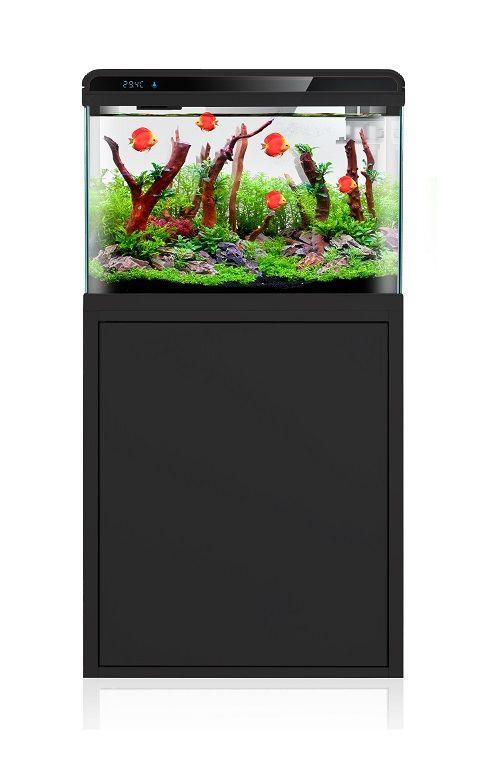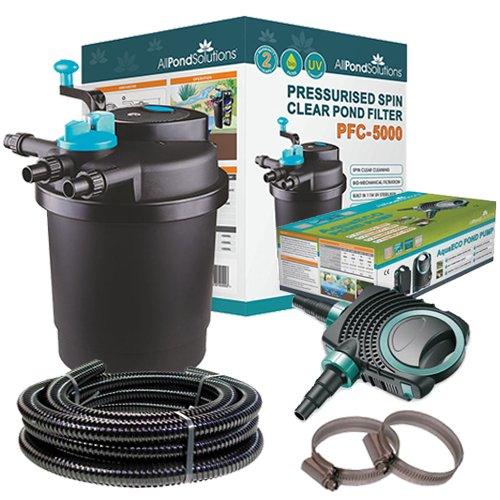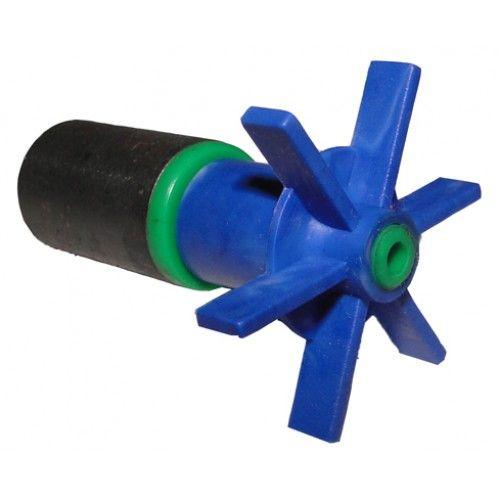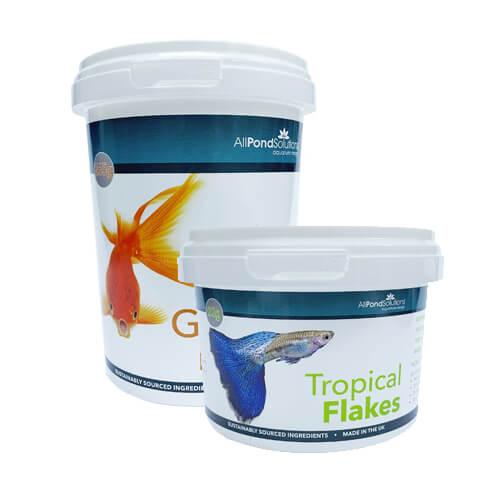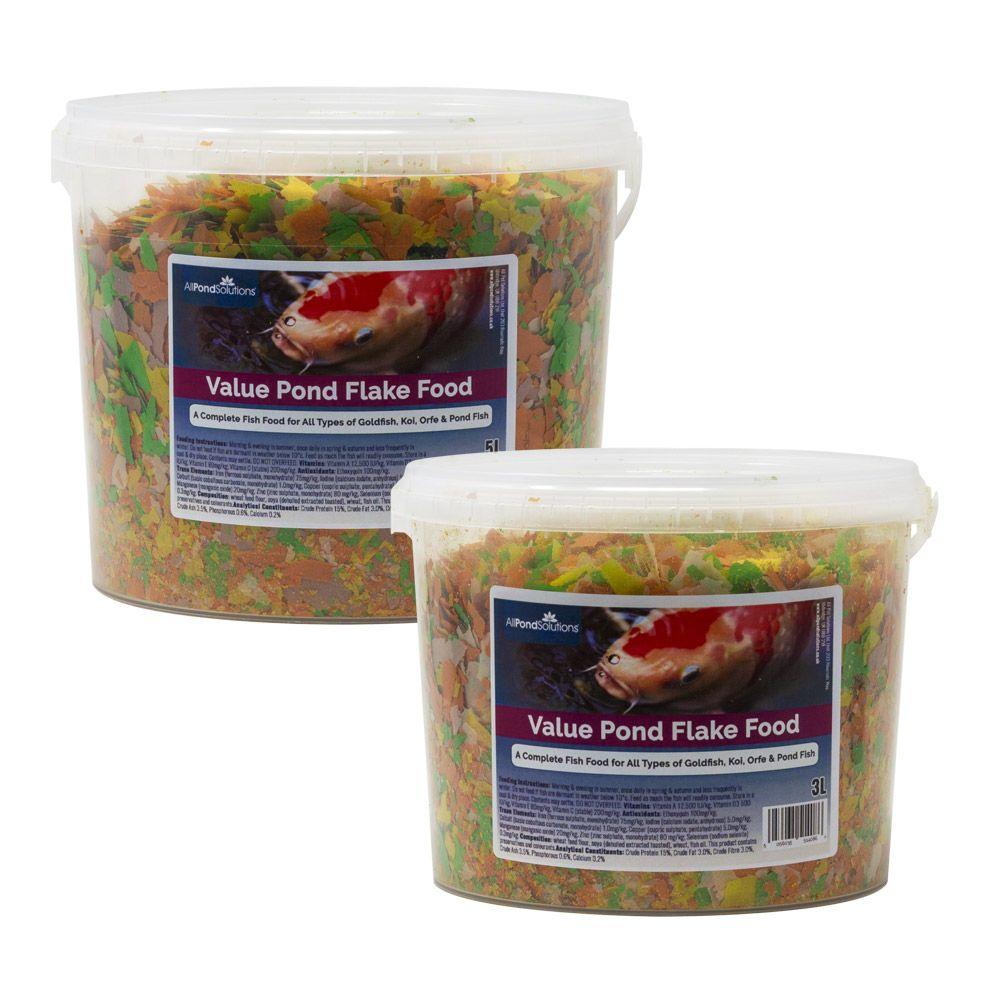Scientific Name: Astronotus ocellatus
Please note – The image used above is for illustration purposes only; Size, colour and sex may vary. Many of our livestock species are sold as juveniles and have not yet reached their full size and colour potential. If you have any concerns about the size or colour of the livestock you wish to order, please contact our livestock team via our support centre before placing your order. Due to the large quantities of livestock orders daily, the livestock team will are unable to select fish / shrimp to meet specific gender or aesthetic needs.
Approximate purchase size : 5 - 7cm
All Pond Solutions will always endeavour to supply as close to the approximate size range as possible. Due to variations from suppliers on rare occasions this may not always be possible. Images used are to show the full potential of the fish when fully mature and are not always representative of juvenile specimens.
How easy are they to care for?
Although large, Tiger Oscar is a relatively easy to care for Cichlid. High filtration requirements are needed due to the size and mess that such fish can create.
How large can they grow?
35cm
Where in the world are they from?
Widely distributed in the Amazon region, Colombia, Venezuela, Bolivia, Ecuador, Peru and Brazil
What is the ideal number to keep together?
It is not uncommon for Tiger Oscars to be kept with other fish of a similar size. Including other Oscars.
What water conditions do they require?
Will accept temperatures from 20 - 28C and a pH range between 6.0 - 7.5.
What should you feed them?
Depending on size, will happily accept flakes when small, but will quickly require pellets of varying sizes. Frozen foods such as krill will also be greedily eaten.
How compatible are they with other fish?
Yes, but only of a similar size and temperament.
Can they be bred in captivity?
A species that spawns in the poen substrate forming extended pair bonds when mating. The pair will meticulously maintain their chosen spawning site before laying eggs. Like most Cichlids parental care is extended post breeding, but fry can be separated when free swimming with no adverse effect.
